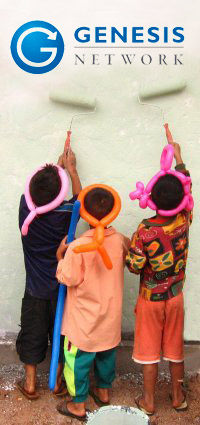How is nonprofit accountability evaluated in Haiti?
Robert Moreau
Research Analyst/Outreach
The eyes of the world media have largely moved on to other issues, but ongoing relief in Haiti continues. As noted by the Brookings Institution, “the publicly disseminated Action Plan for Reconstruction and National Development of Haiti…has assessed Haiti’s reconstruction needs over the next three years at $11.5 billion.” At a UN conference in late March-early April, international donors pledged $9.9 billion in reconstruction aid.
As noted, Haiti has an abundance of nonprofit organizations in the country, and most education and healthcare has historically been provided by NGOs. Even in the pre-earthquake period, transparency was a concern-a trend continuing into the relief efforts.
On February 24, CBS News published an article delving into the practices of Feed the Children, where it refuted a statement the charity ran a camp “providing medical relief for 12,000 people,” among other claims.
Even before then, Wyclef Jean’s Yele nonprofit came under scrutiny. Investigations by the Associated Press and The Smoking Gun found that the charity was closely linked to Jean’s business interests and filed three years of tax returns on the same date, among other highlights.
The question must be asked: how can the public know what is being done with its money and who is it really going to help? Transparency, therefore, is an issue that must be addressed.
Nonprofits Emphasizing Transparency
The stories of Feed the Children and Yele are shocking and do much to discourage confidence in relief efforts, but other agencies have emphasized transparency in their work. Two of these are:
- Doctors without Borders/Medicines Sans Frontiers (MSF): Founded in 1971 and awarded the Nobel Peace Prize in 1999, MSF builds on its public credibility through emphasizing transparency. Its main Haiti page details activity reports from 2001-2008, and news articles on current post-earthquake efforts are easily searchable. Updates include work in different areas of the country and detailed figures such as medical kits, etc. provided. MSF has shown honesty in its needs. In February, it asked donors to give to its Emergency Relief Fund as it had enough money for its current activities in Haiti.
- The World Food Programme (WFP): Founded in 1962 and part of the United Nations system, WFP is currently handling a caseload of two million people in initiatives projected to run until December 2010. Its Haiti Crisis page includes an updated situation report, maps of sites and beneficiaries targeted, as well as an updated plan of its efforts including budget costs and justification for increase in spending.
However, overall “charities aren’t accompanying their appeals with the information we’d need to have a sense of their “room for more funding,” noted GiveWell.org in a February 4 posting where it gave a list of four questions it believes charities should be asked.
- “1. How much are you trying to raise?
- 2. Roughly speaking, what activities are you seeking to fund?
- 3. How much have you raised so far?
- 4. If you raise more than your target, what will you do with the remaining funds?”
GiveWell scoured the web to see if 17 major charities involved in the effort answered these questions, and found that apart from MSF, all of them did not. Also, finding relevant information often required an exhausting search through many web pages.
Some websites have worked to provide some monitoring, with the largest being ReliefOversight.org, which makes background information on organizations and verified “activity reports” available. However, some observers worry about inaccurate whistle blowing reaching third-party sources, or that aid workers will not come forward unless they can be guaranteed anonymity.
While third-party monitoring, whether it be from journalists or independent websites, can play a role in keeping NGOs honest, aid agencies themselves must take the lead in making information detailed, honest, regularly updated, and easily accessible. However, given the potential for bias by reports from upper brass without dispute by voices “on the ground” is there an ideal mix of internal and third-party monitoring that would be ideal?
Through its interactive model, the GENESIS Network continues to develop and implement comprehensive measures of transparency in Haiti and elsewhere. A piece will follow with detail about GENESIS’ response to accountability.
Ideas for discussion: What ways (activity/financial reports, news, photos, etc.) do you think charities can effectively show transparency in their projects? Which methods of doing so might be overrated? What are the advantages and pitfalls of self-monitoring and third-party independent monitoring, and how could they ideally complement one another? Any and all questions and comments about these or other points are appreciated.
 Robert Moreau is Research Analyst/Outreach for the GENESIS Network. A 2008 Master’s graduate of the University of Massachusetts Lowell in Regional Economic and Social Development, Moreau has been working for GENESIS since July 2009. His work has included freelance newspaper pieces and a newsletter published for a Lowell-area social services agency in 2008
Robert Moreau is Research Analyst/Outreach for the GENESIS Network. A 2008 Master’s graduate of the University of Massachusetts Lowell in Regional Economic and Social Development, Moreau has been working for GENESIS since July 2009. His work has included freelance newspaper pieces and a newsletter published for a Lowell-area social services agency in 2008




leave a comment